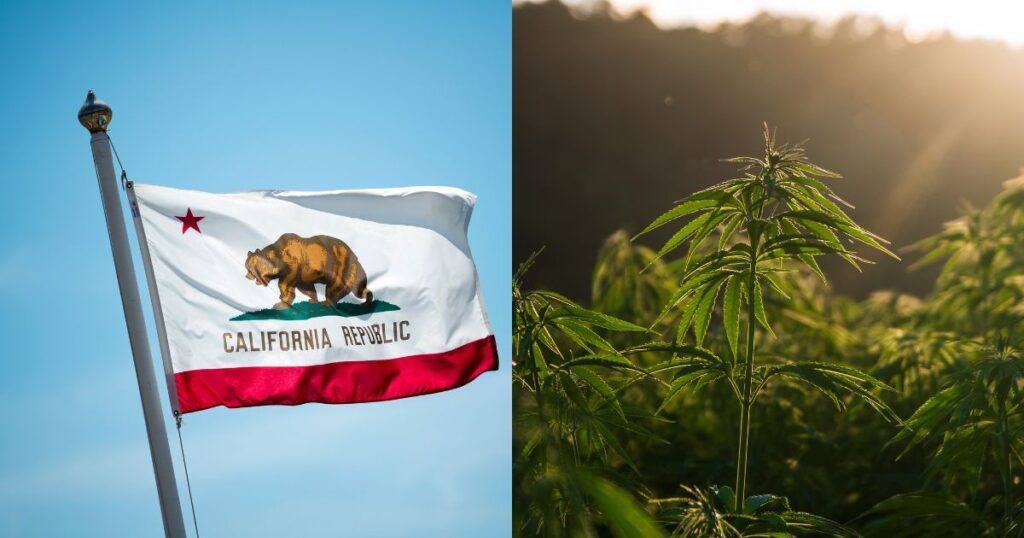California Governor Gavin Newsom has signed Assembly Bill 8 into law, reopening the market for intoxicating hemp products after emergency regulations had previously banned their sale. AB 8 will integrate these products into the state’s existing cannabis market for regulation.
Authored by Assemblymember Cecilia Aguiar-Curry (D-Winters), the bill aims to create a single, unified regulatory framework for all intoxicating cannabinoid products, regardless of their origin from hemp or cannabis.
The new law addresses what officials have described as loopholes in state and federal law that allowed for the proliferation of intoxicating hemp products outside of the licensed cannabis system.
Lawmakers argued that these products were often easily accessible in locations like gas stations and smoke shops, raising concerns about youth access and consumer safety.
With the passage of AB 8, lawmakers aim to establish clearer rules, enhance enforcement, and ensure that all intoxicating products are subject to the same stringent standards as the legal cannabis industry in California.
What Does AB 8 Change?
AB 8 introduces several key changes to how hemp and cannabis products are regulated in California. The primary goal is to bring intoxicating hemp products, which have existed in a legal gray area, under the oversight of the Department of Cannabis Control (DCC).
This measure ensures that licensed dispensaries will sell these products only to adults aged 21 and over, similar to traditional cannabis products.
The legislation establishes clear guidelines for how hemp can be incorporated into the licensed cannabis market. One of the bill’s major provisions is a ban on the sale of synthetic cannabinoids and inhalable hemp products.
Furthermore, it limits when manufacturers can use non-intoxicating hemp in goods sold outside the licensed cannabis market. For instance, starting January 1, 2026, industrial hemp raw extract must meet a purity level over 99% and contain no THC or synthetic cannabinoids for inclusion in products like food, beverages, or dietary supplements.
A key part of the legislation is the expansion of enforcement tools for both state and local agencies. These new powers will allow authorities to more effectively inspect, seize, and destroy unlawful cannabis and cannabinoid products, cracking down on the illicit market that has competed with licensed businesses.
The law also prohibits businesses engaged in selling tobacco products from possessing or selling cannabis or products presumed to be cannabis. Many of the law’s key provisions will take effect in January 2028. These provisions mandate that consumable hemp products containing cannabinoids other than CBD must comply with the state’s existing marijuana laws.
A Move to Protect Consumers and a Fair Marketplace?
Supporters of AB 8 emphasize its role in protecting public health, particularly for young people. Governor Newsom stated, “For too long, nefarious hemp manufacturers have been exploiting loopholes to make their intoxicating products easily available to our most vulnerable communities—that stops today.”
This sentiment was echoed by Assembly Majority Leader Aguiar-Curry, who said, “Our first job is to protect our kids and our communities.”
Lawmakers also view the bill as a crucial step toward ensuring fair competition for California’s legal cannabis businesses, which have struggled to compete with the unregulated hemp market.
DCC Director Nicole Elliott highlighted this, stating, “By closing loopholes around intoxicating hemp products and bringing them under the same strict rules as cannabis, this legislation protects consumers, ensures fair competition for licensed businesses, and strengthens the integrity of our regulated marketplace.”
According to supporters, placing all intoxicating products under the same regulatory umbrella creates a level playing field where all businesses must adhere to the same safety, testing, and marketing standards.
Those in favor argue that the bill provides much-needed clarity and responsible regulation. Elliott described the law as “a critical step forward for California’s cannabis industry and for consumer safety,” emphasizing that it upholds the high standards Californians expect for all intoxicating products.
What This Means for the Future
The passage of AB 8 signals a major shift in California’s approach to cannabis and hemp regulation. By consolidating the oversight of all intoxicating cannabinoids, the state now has greater control over what they argue is a benefit for public safety and market fairness.
The coming years will show this legislation’s full impact as authorities implement its provisions. The intent is clear: we aim to create a single, regulated market where consumers have protection and licensed businesses can compete fairly.
For businesses, this means adapting to a new regulatory landscape, while for consumers, it promises a safer and more transparent marketplace for all cannabinoid products.


















